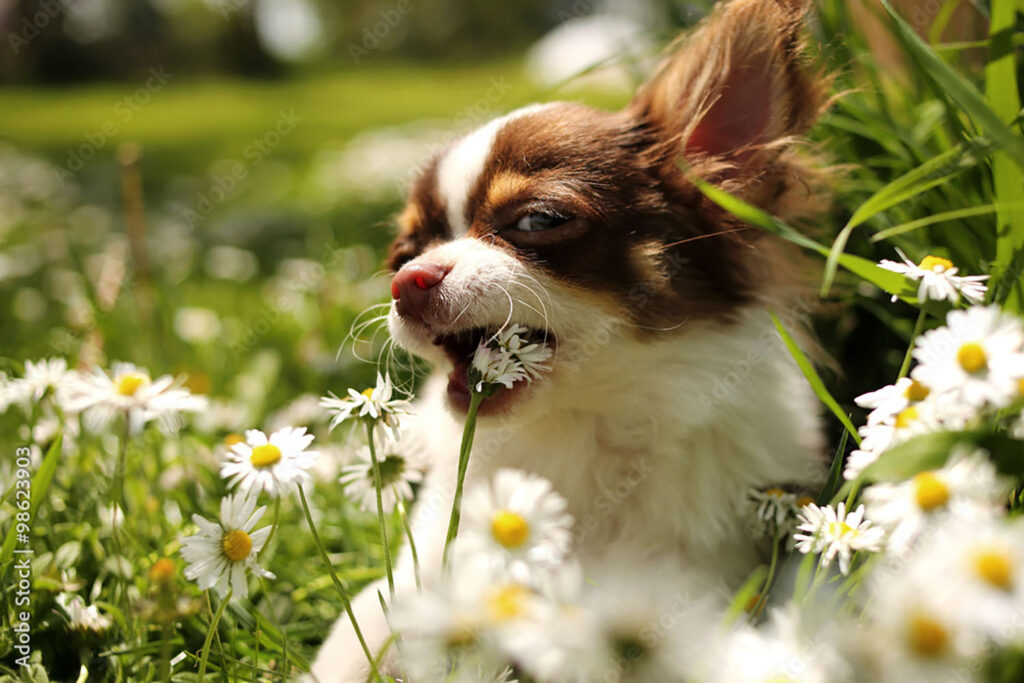By Alliance Communications Coordinator Amy Durr
If you can’t get enough of puppy videos (and really, who can?), may I suggest something just as endearing, funny and surprising? Plant a garden. Gardens are good for you physically and emotionally: nurturing plants and watching pollinators and other wildlife enjoy your flowers hatches a curiously deep affection. An average garden has more than 2,000 insects, many beneficial, who just like puppies get themselves stuck in odd situations. Watching their tiny brains problem-solve gets you rooting for them.
Speaking of puppies, have you ever noticed how weird birds are? Watching them hop around and cock their heads often strikes me as silly, and silliness is completely underrated. Surprises keep blooming: plants appear out of nowhere in strategically terrible spots, birds nest over your front door (rendering it useless for weeks) and something removes every bit of a large parsley plant including the roots. What will happen in your garden? I bet you will unearth joy.
Get Started with the Most Resilient Plants – Herbs and Native Species
Planting your own spellbinding garden can be as easy as one trip to the nearest plant nursery to buy a bouquet of herb plants, some of the easiest to keep alive. You can start with one container, even pre-used: think wooden crates, old tires (not for anything edible), gutters, burlap sacks or bird baths. Any size herb, flower or vegetable garden will help support birds, wildlife, and beloved crucial pollinators — not just bees, but hummingbirds, butterflies, moths, other insects and my personal favorite, bats. #SavetheBees!
One caveat: many commercially grown plants from big box stores may have Neonicotinoid systemic insecticides (inside the plants) that can kill many pollinators. To avoid this, start with organic seeds or purchase seedlings and plants from local nurseries or growers who will assure that they are not using systemic insecticides.
Mostly unkempt, straggly affairs, my herb gardens have always felt ravishing and magical. The tiniest gardens have swarmed with beauty, scent and practical benefits: time in nature, reducing stress levels, increasing social connection, improving diet by growing healthy food, and expanding exercise including balance, strength and flexibility. The Mayo Clinic Health System agrees!
Learn Secrets of Nature from Some Soil and Plants
Awe and joy are built into gardens from the get-go. Wondrous, because even the tiniest container garden holds the expansiveness of sustainability in a nutshell (or at least a small bucket). Plants have secret lives, interact with each other, and are resiliently adaptive. Getting chills like me? Together flora restores air quality, enhances biodiversity and regenerates soil. In one year you can observe a full life-cycle and be gifted with cucumbers or strawberries or mushrooms. Joy and gratitude are steadily sparked by the abounding life even the smallest garden holds.
Gardens help you reawaken to the natural world and rediscover vastness, reverence and ancient connections. This knowledge leads to more complex mental frameworks and personal transformation. For me, gardens expand my thinking, embue me with thankfulness, and evoke a startling tranquility.
One of the things I enjoy most about the Alliance is talking about the robust and always astounding integrativeness of true sustainability. Our Campaign focuses on co-creating a world of sustainability, health, equity and kindness. This breadth still doesn’t begin to scratch the surface of the real world-altering, life-affirming, naively intricate wholeness of sustainability. But the simplest down-to-earth garden encapsulates it, and may even share the meaning of life if you listen hard enough.
Learn to Love Spiders (and Crickets and Frogs and Snakes)
For most of my life I was paralytically afraid of spiders. I would remain motionless when I saw one, terrified to move because I didn’t want the spider to launch itself at me and somehow get stuck in my hair. Gardening cured my phobia by neatly changing my perspective.
Bees, frogs and toads, insects, bats and even snakes belong to the ecosystem that you are encouraging to thrive, and each plays an essential role in the health of your garden, including controlling pests. As I learned their roles, my fears turned into appreciation, in small and big ways. Plus, it feels better to love them.
Grow in Wisdom
As for the meaning of life, I believe a garden gives some pretty good hints of where to look. If you allow yourself to experience the deep emotional connection possible in your garden, the unanticipated healing you may stumble over, the sensation of abiding oneness, the vibrant gratitude, the humbling smallness in a boundless world, and most of all the connection as if you are growing roots yourself, you may find a new answer. But don’t forget to be silly!

